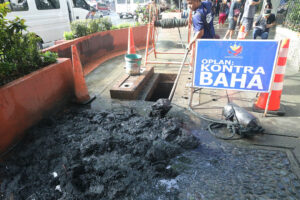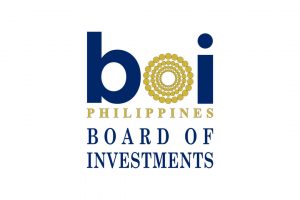By Chloe Mari A. Hufana, Reporter
THE PHILIPPINES jumped nine spots in an annual ranking of countries’ ability to attract and retain talent, according to a report by business school Institut Européen d’Administration des Affaires (INSEAD) and the Portulans Institute.
In the Global Talent Competitiveness Index (GTCI) 2025, the Philippines ranked 75th out of 135 economies, improving from 84th in 2023. It had an overall score of 42.39 out of a possible 100.
This was the country’s best ranking since 2021 when it was at 70th place.
The index looks at how countries and cities grow, attract and retain talent.
“These developments highlight the Philippines’ ongoing efforts to strengthen managerial capability, enhance workforce adaptability, and foster an innovation-driven, digitally connected talent landscape,” the report read.
The Philippines ranked eighth among its peers in the East and Southeast Asian region.
Singapore ranked first overall with a score of 73.29, followed by Japan (28th), South Korea (31st), Brunei (43rd), Malaysia (46th), China (53rd) and Mongolia (65th).
The Philippines was also the top performer among lower middle-income economies, outpacing regional peers such as Vietnam (76th), Thailand (77th) and Indonesia (80th).
“Among lower middle-income economies, Lebanon, the Philippines, and India stand out for their growing emphasis on transferable and future-oriented skills,” the report said.
SOFT SKILLSAlso, the Philippines was surprisingly the only lower middle-income economy in the soft skills top 10, which was dominated by high-income economies led by Denmark, Iceland and Switzerland.
The report said this underscores that “human-centric capabilities — such as communication, teamwork, and adaptability — are increasingly vital drivers of talent competitiveness across all income groups.”
The Philippines ranked 50th in the “Grow” pillar, supported by strong outcomes in lifelong learning (27th), employee development (27th) and high digital engagement, including the 20th ranked use of virtual social networks among professionals.
Market competitiveness also improved, with the Philippines placing 35th in the extent of market dominance and 54th in sustainability.
The Philippine labor market continues to show strong private sector management practices — 12th in professional management, 19th in cluster development and 22nd in ease of finding skilled employees.
“Economies that align education, labor and innovation systems towards adaptive talent development can achieve high performance even with modest income levels,” said Paul Evans, emeritus professor of organizational behavior at INSEAD and co-editor of the report.
Rafael Escalona Reynoso, chief executive officer of Portulans Institute, said the most crucial skills today are adaptive ones: “the ability to collaborate, think across disciplines, innovate under pressure and navigate fast-moving, tech-driven environments.”
“These are the skills that increasingly define a country’s competitiveness — and the GTCI now captures this reality more clearly than ever,” he added.
However, the report noted persistent weaknesses in the Philippines’ ability to attract foreign talent. The Philippines ranked 88th in the “Attract” pillar, dragged down by low external openness metrics such as migrant stock (135th).
Governance and regulatory indicators also pulled down scores in the “Enable” pillar, where the Philippines placed 77th, reflecting gaps in the rule of law, corruption control and political stability.
Despite these challenges, the GTCI findings suggested the Philippines is developing the right capabilities to support higher-value industries.
The country scored above its income-group average in overall GTCI performance — 42.39 versus 33.64 — and demonstrated strong upward mobility relative to peers.
The results come as the Marcos administration pushes reforms in education, skills training and digitalization to strengthen the workforce and attract investment.
The report’s emphasis on adaptability and lifelong learning aligned with efforts to reskill Filipino workers for artificial intelligence- and technology-intensive sectors.
Singapore, Switzerland, Denmark, Finland and Sweden led the index as top performers. The five lowest-ranking countries were all in Africa — Burkina Faso, Madagascar, Mozambique, the Democratic Republic of the Congo and Chad.
On the Philippines’ low score in attracting foreign talent, University of the Philippines Diliman School of Labor and Industrial Relations Assistant Professor Benjamin B. Velasco said labor migration continues to drain the Philippines of skilled workers, even as the country’s strong English proficiency helps drive its rise in global talent competitiveness.
“It is a good thing that the Philippines is rising in talent competitiveness. Despite evident deficits in basic education, our English proficiency drives talent competitiveness given the reality of global supply chains in services,” he said via Facebook Messenger.
To sustain and expand this progress, he said the government must fix basic education gaps, significantly increase higher-education spending to 6% of gross domestic product and rationalize vocational-technical training.
He also urged the full implementation of the Labor Education Act to embed workers’ rights and career guidance into higher education and technical-vocational curricula.
Federation of Free Workers President Jose Sonny G. Matula said the Philippines’ rise in the index is a bright spot amid concerns over corruption and substandard infrastructure projects.
The improvement showed the country’s strength in developing lifelong learning, digital skills and professional management, he added.
“This is also a reminder to government and business: rankings are not enough — people must feel it in their wages, job security, and quality of education,” he said via Viber, noting the importance of building awareness of decent work through education.
While Filipino talent is globally competitive, Mr. Matula said the larger challenge is ensuring workers aren’t compelled to migrate or endure precarious employment to make ends meet.


















